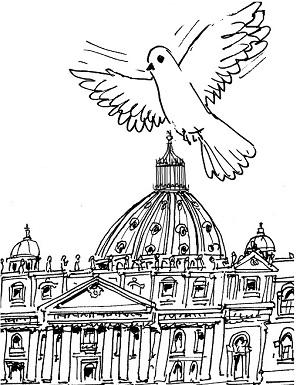
"Now I will no longer be in the world, but they are in the world, while I am coming to you” (John 17:11).
One of the key challenges facing the church has always been how to relate to the "world," that is, the power structures and cultural norms that direct human society. This includes economic and political systems. History reveals times when the church was persecuted for opposing secular power and other times when it accommodated itself to the state, blessing its policies in exchange for protection and privilege.
The Acts of the Apostles tells both stories. After the destruction of Jerusalem in the year 70 CE, both Jews and Christians were dispersed throughout the Roman empire. Both Peter and Paul are said to have been martyred in Rome under Nero. Sporadic persecutions of Christians continued into the second century. The Book of Revelation, the last book in the New Testament, is a thinly veiled depiction of the struggle of the church within the empire.
At the same time, Acts and other New Testament writings reflect the effort by the church to show that Christianity posed no threat to secular power. Paul uses his Roman citizenship to escape persecution. We know from history that by the fourth century, under the Emperor Constantine, Christianity was an accepted, even privileged, religion, beginning a long history of church-state complicity that afforded enormous worldly power to the church.
Our belief that God entered human history to save rather than condemn the world cautions us not to reject anything human, social and cultural. We embrace the world, participate as good citizens in the world in order to bring the leaven of truth, love and justice to its systems.
But to do this also means standing up to the abuse of power and policies that restrict religious freedom, exploit and oppress people. This balance defines Pope Francis’ sometimes harsh criticism of the global economy and many government policies while using diplomacy and persuasion to protect its own institutions and philanthropic support. History reveals a church that is often radical in its teachings but moderate in its coexistence with the world.
Faith means that we are both in the world and not of the world. Our union with the risen Christ gives us citizenship in both this world and in the world to come. God's reign is both already here and not yet here. So, we live in everyday, often compromised, reality, but guided and inspired by the vision and values of the future toward which God is drawing creation and human community.







